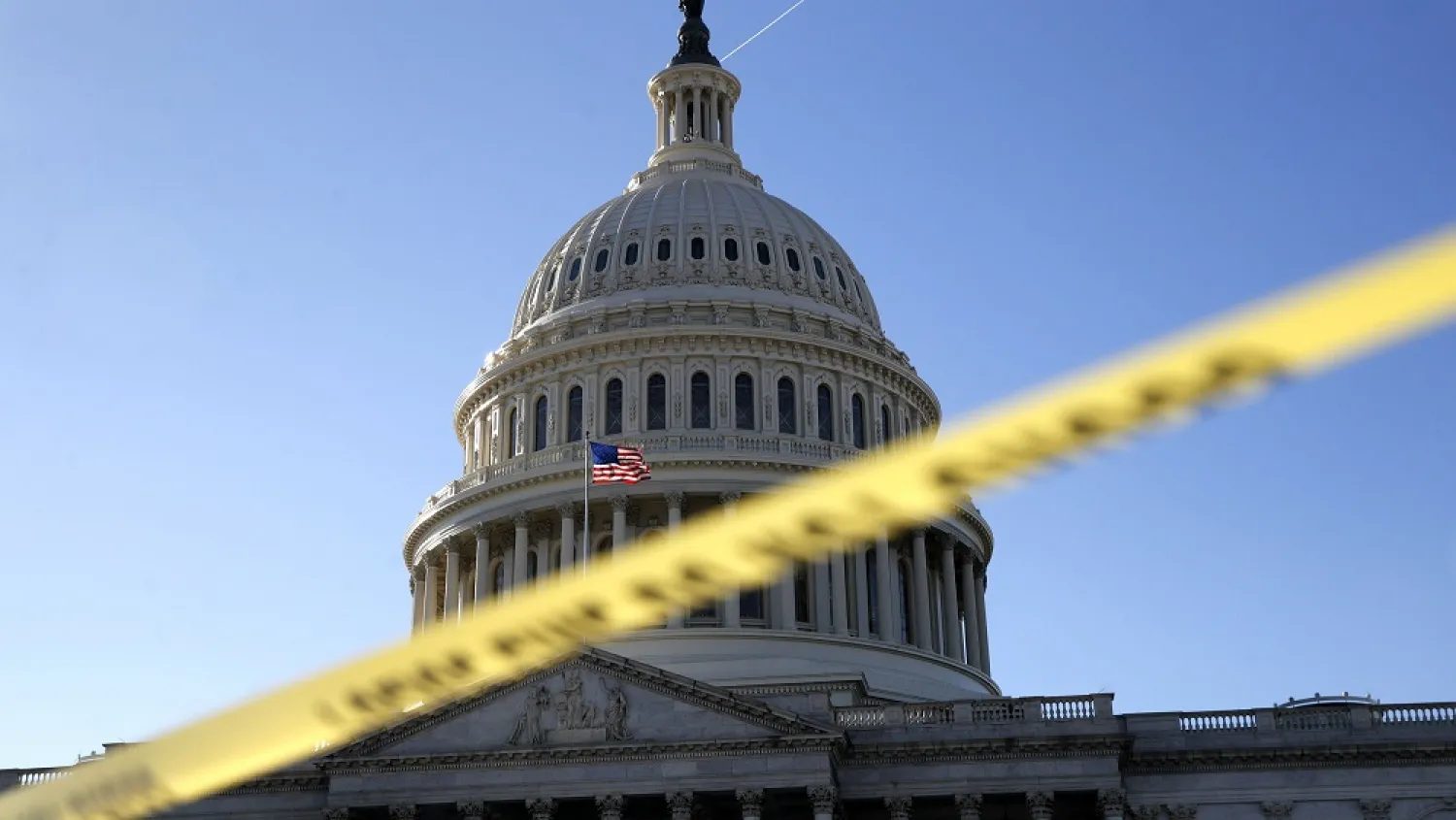A year to the day that he assumed office, President Donald Trump faced the greatest challenge of his term as difference between Republicans and Democrats forced the shutdown of the US government.
Disputes over the funding for federal agencies led to the shutdown, the first since October 2013.
Trump’s inability to cut a deal despite having a Republican majority in both houses of Congress marks arguably the most debilitating setback for his crisis-plagued administration and highlights the country’s deep political divisions.
Democrats had insisted that any bill to renew government funding also contain permanent protections for approximately 700,000 young, undocumented immigrants who were brought illegally into the United States as children.
Last week, Trump rejected a bipartisan Senate deal that would have accomplished that as well as hand the White House $2.7 billion in new money for immigration enforcement at America’s borders.
Minutes before Friday’s midnight deadline for a funding deal, Trump’s White House issued a statement blaming Democrats for the shutdown. “We will not negotiate the status of unlawful immigrants while Democrats hold our lawful citizens hostage over their reckless demands,” it said.
The shutdown was cemented when the Senate, meeting late into Friday night, blocked a bill to maintain the federal government’s funding through February 16.
The vote was 50-49, well short of the 60 needed in the 100-member chamber to vault the bill over a procedural hurdle.
Four Republicans joined most Democrats in killing the measure. A fifth Republican, Senate Majority Leader Mitch McConnell, voted “no” too, but only as part of a parliamentary maneuver to make it easier to bring another bill to the floor.
The breakdown ended a long day of closed-door meetings in Congress and at the White House.
Even as they promised to work on getting the government back up again as soon as possible, Republicans and Democrats blamed each other for the predicament.
Senate Majority Leader Mitch McConnell joined Trump in attacking Democrats.
“What we’ve just witnessed on the floor was a cynical decision by Senate Democrats to shove aside millions of Americans for the sake of irresponsible political games,” McConnell said.
Senate Democratic Leader Chuck Schumer said his party took significant steps to reach a deal, including raising the possibility of funding for Trump’s proposed wall along the US border with Mexico, which they have ardently opposed.
“It’s almost as if you were rooting for a shutdown,” Schumer said in comments on the Senate floor aimed directly at Trump.
Republican and Democratic leaders were expected to renew negotiations on Saturday in the hope of restoring government financing before Monday.
The immediate impact of the government shutdown was also eased somewhat by its timing, starting on a weekend when most government employees normally do not work anyway.
No matter the timing, the Defense Department said its combat operations in Afghanistan and other military activities would continue, while federal law enforcement officers also would remain on duty.
Without a quick deal, most day-to-day operations in the federal government will be disrupted. Hundreds of thousands of government employees will be put on temporary unpaid leave, including many of the White House’s 1,700 workers. Many Capitol maintenance workers were being instructed to stay home.
The shutdown will start to have more serious consequences on Monday as government employees ranging from financial regulators and tax collectors to scientists and civilian staff at the Pentagon will have to stay away from work.
Early on Saturday, McConnell offered up a new plan. Instead of the February 16 end date for the temporary spending bill, he proposed February 8.
Senate Democrats had argued this week for an extension of just four or five days to force both sides into serious negotiations on the immigration issue.
Shutdowns have led to furloughs of several hundred thousand federal employees, required many government activities to be stopped or curtailed and affected wide swaths of the economy.
During Jimmy Carter's administration, shutdowns happened nearly every year, averaging 11 days each. During Ronald Reagan's two terms in the 1980s, there were six shutdowns, typically just one or two days apiece.
Legal opinions issued in 1980 and 1981 made shutdowns more impactful. Opinions by then-Attorney General Benjamin Civiletti determined that failure to pass new spending bills required government functioning to shut down in whole or in part. Earlier "shutdowns" did not always entail an actual stop to government functioning and often were simply funding gaps will little real-world effect.
The 16-day partial shutdown of October 2013 came as tea party conservatives, cheered on by outside groups, demanded that language to block implementation of President Barack Obama's health care law be added to a must-do funding bill. Then-Speaker John Boehner tried to avoid a shutdown by funding the government piecemeal, but the effort faltered.
The shutdown affected most government operations and resulted in the furlough of 850,000 employees, costing the government 6.6 million days of work and more than $2.5 billion in lost productivity, according to a report by the Congressional Research Service.









